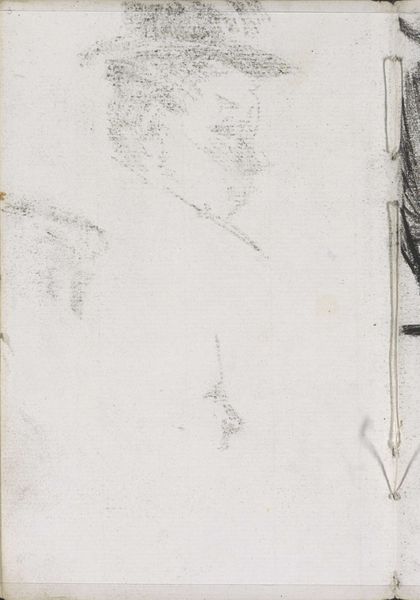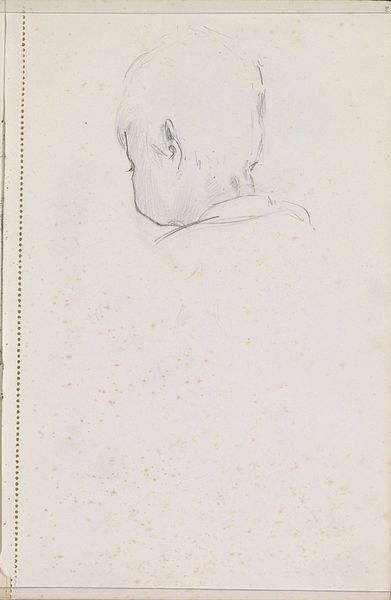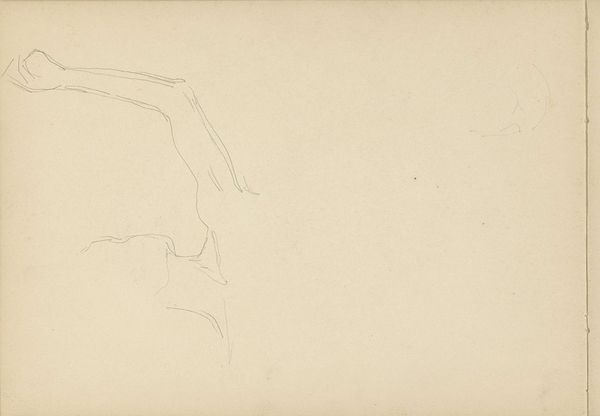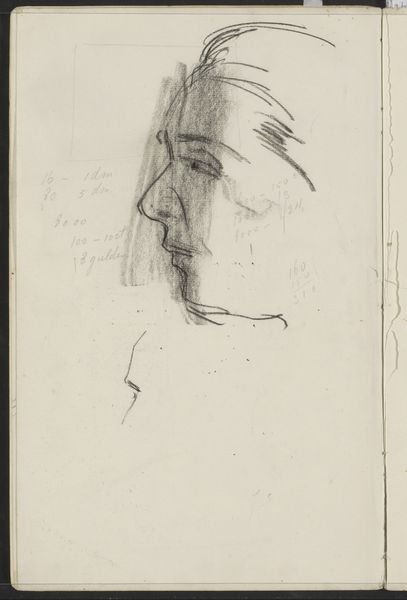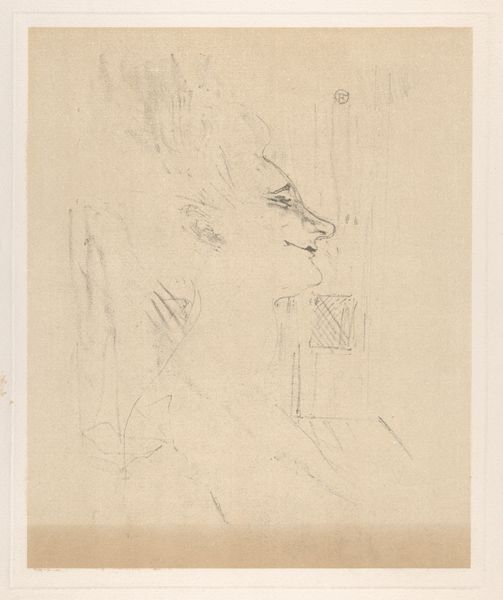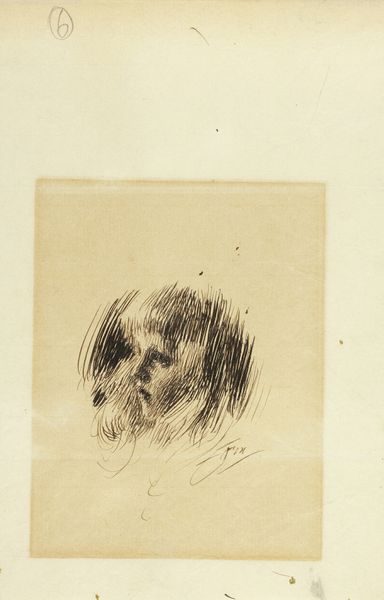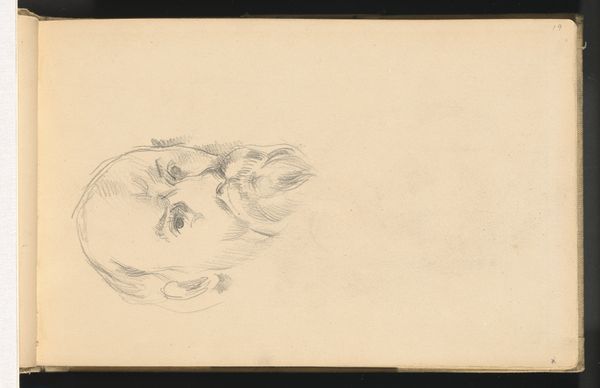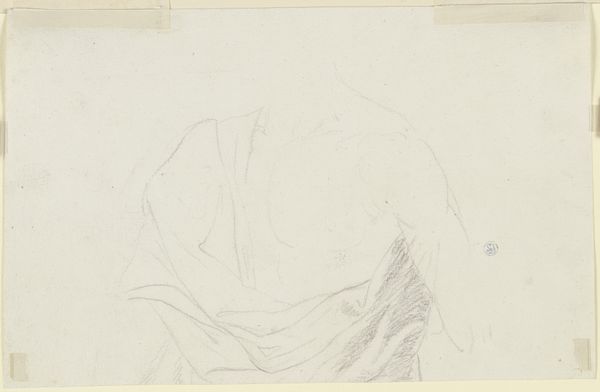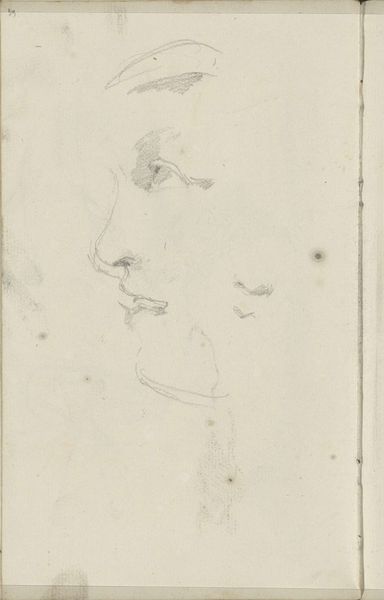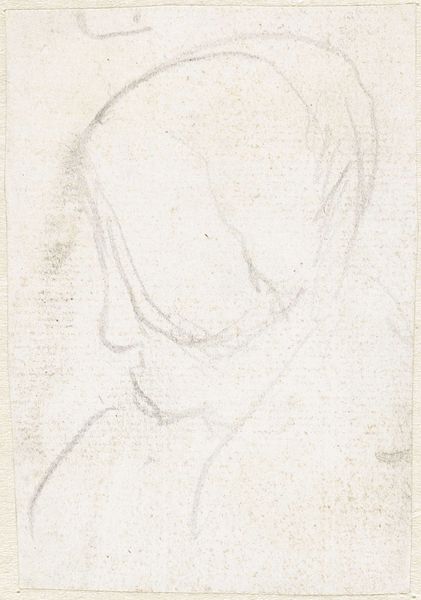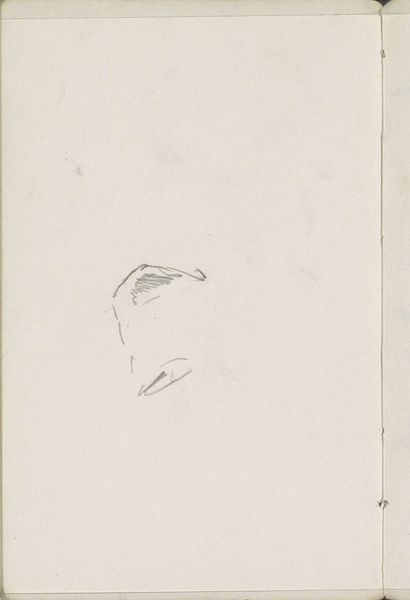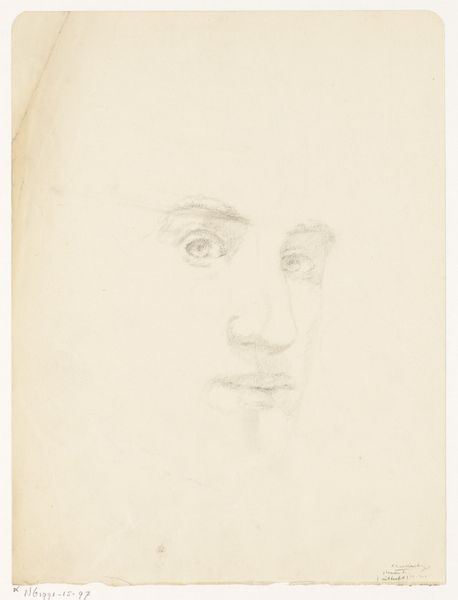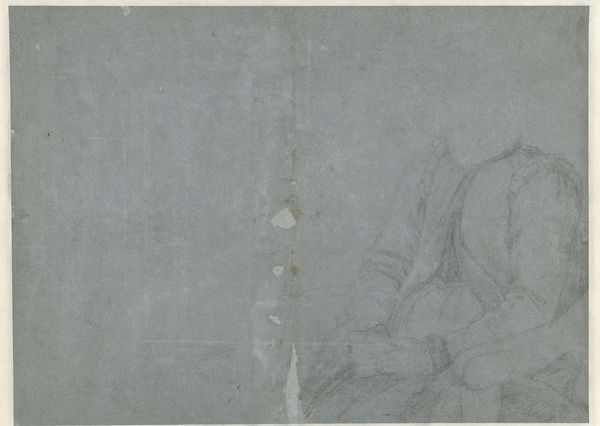
#
pencil drawn
#
amateur sketch
#
light pencil work
#
shading to add clarity
#
pencil sketch
#
idea generation sketch
#
pencil drawing
#
limited contrast and shading
#
pencil work
#
initial sketch
Dimensions: height 310 mm, width 238 mm
Copyright: Rijks Museum: Open Domain
Curator: Oh, this piece— "Zittende jonge vrouw"—is an undated pencil sketch by Taco Scheltema, dating anywhere between 1770 and 1837. It's deceptively simple, isn’t it? Editor: Simple is one word for it. Stark comes to mind as well. The way the subject's face is abruptly cut off, floating in all that negative space... there’s a haunting, unfinished quality to it. Curator: Exactly! It feels almost accidental, like a fleeting thought captured on paper. Scheltema has given us this almost ephemeral presence through some delicate shading, that barely suggests more than what it explicitly offers. The artist almost wants us to focus on the emptiness. Editor: I agree about the ephemeral nature and would say it even echoes larger societal attitudes of the era. Note how the incompleteness invites the viewer to participate, imposing our interpretations, expectations, and perhaps even biases onto this woman. The incompleteness makes the observer complicit in completing that subject in the portrait. Curator: Complicit, I love that! Because in a sense we are, aren't we? We bring our own stories to fill in the gaps, to imagine her life, her thoughts… I get this uncanny feeling of almost…intrusion? Like peeking into a private moment. Editor: Perhaps her obscured gaze represents how women’s voices have been historically suppressed. Was the piece, whether consciously or unconsciously, documenting these silenced women? Curator: That's a compelling thought. It pushes against what one initially takes as a kind of artistic clumsiness—it makes one reassess. Is this 'unfinished' quality really a conscious choice? An intentional commentary on visibility, on who gets to be seen, heard, completed? It's easy to look at these quiet sketches and just pass over them. Editor: But the beauty of art lies often in these whispered commentaries, hidden in plain sight. It challenges us to actively look, to question the status quo. Curator: It's so true. A sketch can speak volumes and sometimes, I suspect, it holds more truths than any perfectly polished portrait. I almost feel as though that blankness forces a conversation in one's head; the viewer must grapple with so many implicit questions regarding a figure whose story will never be completed on paper. Editor: And I think the questions it raises about female representation continue to resonate today. We should use her expression—or lack thereof—to continue working towards equity for women today.
Comments
No comments
Be the first to comment and join the conversation on the ultimate creative platform.

